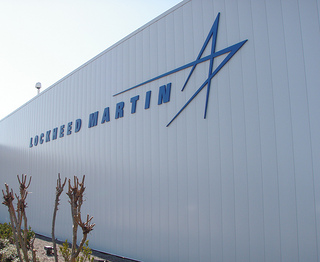A United States Congressional committee is worried that the Chinese may be using telecommunications firms to steal U.S. secrets — and those members of Congress would know, because there’s no one better at it than the U.S. government itself.
Remember back in 2000 when then-Chinese president Jiang Zemin, ignoring protests at home, paid U.S.-based Boeing $120 million for a 767 passenger jet to serve as China’s version of Air Force One?
According to Time, when the plane was delivered to him, Chinese authorities found 27 surveillance devices secretly installed throughout the president’s plane. The Americans had put bugs above President Zemin’s bed and even in his bathroom.
What must have been the reaction in Beijing to hear members of Congress raise the alarm about national security over Chinese telecom companies Huawei and ZTE doing business with the U.S. government and U.S. companies while having close ties to the government?
The report released this month by two members of the U.S. House of Representatives Permanent Select Committee on Intelligence was damning in its findings.
It found that “Huawei’s corporate history suggests ties to the [Chinese] military,” and that “Huawei failed to explain its relationship with the Chinese Government” and its “relationships with western consulting firms.”
ZTE fared little better. The report said that “ZTE’s connection to the Chinese Communist Party is a key concern,” and that “ZTE failed to disclose information about its activities in the United States.”
The authors recommended that the “United States should view with suspicion the continued penetration of the U.S. telecommunications market by Chinese telecommunications companies.”
The strong recommendations have been noticed here in Canada, where Huawei has had close dealings with our telecom firms such as Bell, Telus, Sasktel and Wind. The companies were courted by Ontario in 2010, and outgoing Ontario Premier Dalton McGuinty’s government provided $6.5 million to Huawei to create jobs in the province.
The federal government is now signalling that it may use national security concerns to block the Chinese firm from bidding on government telecommunications and email network contracts, according to The Globe and Mail.
Meanwhile, in a seemingly contradictory position, the Harper Conservatives appear ready to allow the Chinese state-owned oil company, CNOOC, to make a major investment in Canada’s “strategic” oil patch by purchasing Nexen.
Why focus only at Huawei, and ZTE, and even CNOOC for that matter? Should the Harper government be looking at all foreign corporations with ties to governments, with a large amount of influence and outright control of important government functions and vital services?
Consider this: all of the concerns raised about China-based Huawei and ZTE can equally be applied to U.S.-based Lockheed Martin.
Our government is staking much of our national security infrastructure on the world’s largest aerospace, defence and telecommunications company. Lockheed Martin has been awarded billions of dollars in government contracts in recent years, and is set to provide almost all of Canada’s transport and fighter aircraft.
The company provides plenty of other government services as well, including our census.
You want close connections to government? Of Lockheed Martin’s $44 billion in revenue, 94.6 per cent is dependent upon national defence spending — most of that from the Pentagon. Close dependence on a foreign government doesn’t come any cosier than that.
The U.S. representatives seemed quite concerned about Huawei’s relationship with consulting firms (otherwise known as lobbyists). In Canada, Lockheed Martin has hired CFN Consultants to handle its government relations, including the F-35 stealth fighter file. CFN Consultants is staffed by former generals and top brass from the Canadian Forces. Seems sinister to me.
And when Canadian journalists at CTV’s W5 were investigating the F-35 program, another one of Lockheed Martin’s hired consulting firms, Thornley Fallis, apparently clamped down on any information going to Canada’s largest private broadcaster. CTV described it as a “no interview to W5” policy shared between Lockheed Martin and the Canadian government.
In fact, that same consulting firm hired by Lockheed Martin has also worked for three federal government departments which selected the US defence giant’s F-35 stealth fighters in a multi-billion-dollar sole-source deal to replace Canada’s CF-18 fleet, according to CTV’s W5.
The U.S. report expressed frustration at ZTE’s secrecy, saying, “the Committee does not understand why it refuses to answer direct questions about the details of those projects.” Sound familiar?
Governments are probably right to consider security implications of business dealings. As former U.S. Ambassador to Canada Paul Cellucci put it, “security trumps trade.” He had a point, but this principle may not only apply to China. It should apply to other countries too, including the United States.
Some in the Harper government may agree. The very first time the Canadian government disallowed a foreign takeover under the Investment Canada Act, it was a U.S. defence firm seeking control of Canadian satellite technology.
And chief amongst the Harper government’s concerns was the power exercised over that American firm by the White House under U.S. national security law.
The bottom line is that Canadian sovereignty and security, including economic security, is a responsibility of the federal government. If this should apply to Chinese companies, fine. But let’s ensure that other companies, like Lockheed Martin, aren’t given a free pass, when their links to another government are so evident.
Steven Staples is the founder of Ceasefire.ca @ceasefireblog
This article was originally published in Embassy and is reprinted with permission.
Photo: Charles Atkeison µg / flickr




